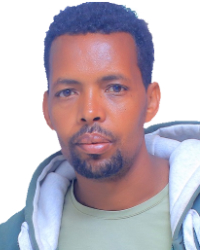Maraqo in Ethiopia

Photo Source:
Anonymous
|
Send Joshua Project a map of this people group.
|
| People Name: | Maraqo |
| Country: | Ethiopia |
| 10/40 Window: | Yes |
| Population: | 151,000 |
| World Population: | 151,000 |
| Primary Language: | Libido |
| Primary Religion: | Islam |
| Christian Adherents: | 29.00 % |
| Evangelicals: | 12.34 % |
| Scripture: | Portions |
| Ministry Resources: | No |
| Jesus Film: | Yes |
| Audio Recordings: | Yes |
| People Cluster: | Omotic |
| Affinity Bloc: | Horn of Africa Peoples |
| Progress Level: |
|
Introduction / History
The Maraqo of Ethiopia are located in the central part of the country, specifically the Gurage region. Their language, Libido, is a member of the Afro-Asiatic language family. The Maraqo are close neighbors to both the Oromo and the Somali.
Ethiopia was one of the first Christian nations, having been introduced to Christianity in the fourth century. Today, more than half the population of the country is Christian. However, like other northern groups, the Maraqo converted to Islam and are presently almost completely Muslim. Islam continues to gain strength among the different groups in Ethiopia by penetrating Christian areas and offering mosque -building programs. Two great waves of persecution of Christians occurred from 1936-1941 and 1974-1990. Though the persecution refined and purified the Church, there were many martyrs.
What Are Their Lives Like?
The Maraqo traditionally lived as warriors. Today, however, they are primarily herdsmen. Within their tribe, a man's status is determined by the amount of livestock he owns. Virility and other masculine attributes are considered desirable, with bravery and war being stressed. They highly value military skills such as riding, spear-throwing and fighting. Although they honor warfare against enemies they demand peace within their community.
Most of the Maraqo live in rural areas where they make a living mainly from raising animals and some farming. However, a small number of the Maraqo have settled in the towns, attracted by employment opportunities and modern schooling facilities. Others have entered the national security forces, the small industrial labor force, and the fields of trade, transportation, and education.
The typical Maraqo dwelling is a tukal, a circular hut made of acacia branches covered with grass mats. The cone-shaped roof has an opening that allows smoke to escape. The staple diet of the Maraqo includes durra (a cereal grain), maize, beans, rice, milk, meat and wild fruits. Coffee and tea are popular beverages.
The Maraqo have nuclear families (a husband, his wife, and their children). The family is headed by an authoritarian father who has the right to expect total obedience. Men usually have only one wife, and they consider children a necessity. The more children and grandchildren a man has, the greater his prestige.
Maraqo boys are trained to become warriors. They are taught at an early age how to use spears. Traditionally, killing of a man was customarily a part of becoming a full-fledged adult as well as part of certain festivals. Wild animals are now used instead of humans.
A basic value of the Maraqo is identification with the group. Cooperation is central to this system, especially in work arrangements. The Maraqo have a reputation for being easygoing and sociable. They value hospitality and almsgiving, but more to relatives and friends than to strangers.
What Are Their Beliefs?
The majority of the Maraqo are Sunni Muslims. Before their conversion to Islam, they were animistic (believing that non-human objects have spirits) and involved in a variety of worship practices. The belief that objects such as trees, springs, and rocks have indwelling spirits is still prevalent. It is further believed that certain spirits, or jinnis, may take possession of people.
Most Maraqo Muslim adults fast during Ramadan (Muslim holy month). However, celebrating other Muslim festivals is limited to self-selected men who gather to read and chant verses from the Koran.
They also have a strong Christian minority that can spread the gospel to the rest of the tribe.
What Are Their Needs?
They need peace in their homeland. In 2023, a Maraqo family was brutally murdered. There are news reports of conflict between them and neighboring tribes.
Prayer Points
Pray for the Lord to bring peace to the Maraqo people of Ethiopia.
Pray for the Holy Spirit to bring a Christ-ward revival to the Maraqo people that will permeat both Christians and Muslims.
Pray that signs and wonders will follow the Maraqo believers as they share Christ with others.
Pray for many to become disciples who disciple others.